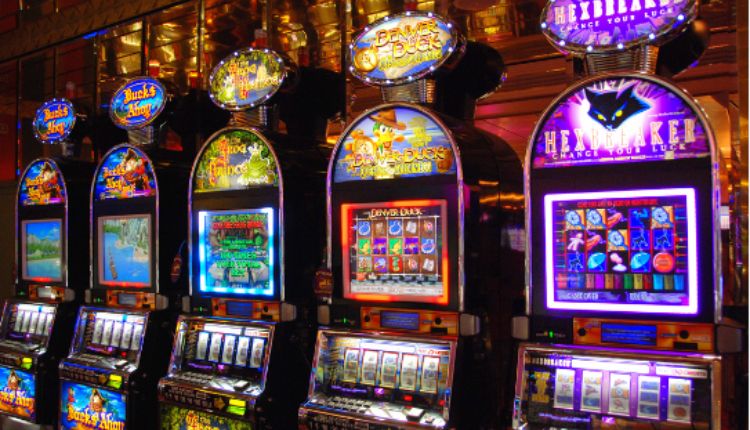A slot is an authorization to take off or land at a particular airport on a specific day during a given time period. These authorizations are used to help manage air traffic at busy airports.
One of the most popular superstitions among online slot players is that if it has been awhile since you last won, you’re sure to hit the jackpot soon! Unfortunately, this is not the case.
Symbols
As slot machines evolved from the 19th century into what they are today, symbols have come to play an important role. There are a variety of different types of slotsymbols, but all offer a payout based on how many of them appear in a line. Some of them are low paying, while others have a high value. These can range from standard icons like numbers, card suits and bells to stacked symbols that increase the odds of hitting a winning combination.
Some of the most common symbols include the Wild symbol which acts like a joker in a pack of cards and can replace other symbols on a winning line, the Scatter symbol which offers a cash prize win or triggers fun bonus features designed within the slot game and finally the Bonus symbol which can award a multiplier to a winning combination or even a free spins round. Some of these special symbols can be found in a single slot while others are only available in certain types of slots.
Payouts
Payouts in slot games vary depending on the game, but they usually involve a combination of symbols. Some slots have stacked symbols, which increase the chances of matching them together for a win. Other features like scatter and bonus symbols can trigger additional rewards. Some slots even include progressive jackpots, which increase with every spin.
The pay table of a slot machine contains important information about the game’s rules, such as the number of paylines and its betting requirements. It also includes an RTP, or return-to-player percentage, which represents the average payout rate of a slot over time.
It’s crucial to set limits before you start playing. This way, you can be sure that you won’t lose more than you want to. It’s also a good idea to set a timer to remind you that it’s time to stop. This will prevent you from becoming emotionally attached to a specific game and over-playing it. Also, remember that each spin is independent and past performance doesn’t guarantee future results.
Bonus rounds
Bonus rounds in slot machines are additional games that allow players to win additional credits. They can be triggered when specific symbols appear on the reels, and can range in complexity from simple to elaborate. The game’s design and layout vary from machine to machine, but many bonus rounds include a spinning wheel and a visual display of the amount of coins or credits the player has won.
The Jimi Hendrix slot, for instance, features a special bonus round in which gamblers click on loudspeakers to reveal symbols that reveal prizes like Crosstown Traffic Free Spins, Purple Haze Free Spins, Little Wing Free Spins, and additional coin credits. These bonuses are based on random chance, but players can also purchase these features.
Although some players believe that following superstitions will increase their odds of winning, this is not the case. Because slots use RNG software, every spin is a different one, and following superstitions can do nothing but lead to big losses.
Regulations
Regulations for slot games vary by locale, but they generally regulate the average payout percentages for a specific game. This ensures that players receive a fair payout and protects casino owners from unfair business practices. Regulations may also include the number of times a player must spin the reels to win.
When you define a slot in the pad, make sure that it doesn’t overlap with the copper size of the connector or the hole. This will prevent the autorouter from miscalculating the distance of the slot, which will result in dimension errors. You can also indicate large cutouts in the legend or copper layer, but make sure you clearly mark them with a clear outline.
Many states have regulations that limit the maximum number of coins players can bet per payline, and some even have a minimum coin denomination. These rules are designed to help players understand the mechanics of the game and increase their chances of winning.
